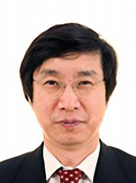
Program
Presidential Award Lecture
September 19 (Wed), 15:00-15:50, Rm. 401

Autophagy Enhancer as a Novel Therapeutic Agent against Diabetes and Metabolic Syndrome
- Myung-Shik Lee, M.D., Ph.D.
- Severance Biomedical Science Institute and Department of Internal Medicine,
Yonsei University College of Medicine, Korea
Prof. Myung-Shik Lee is the first research who demonstrated the role of autophagy in metabolic diseases. Autophagy is a critical intracellular process of turnover and rejuvenation of organelles and proteins. However, nobody had studied the role of autophagy in body metabolism or metabolic disorders such as type 2 diabetes (T2D) until he published the first paper using beta-cell-specific autophagy-knockout mice. In the following studies using mice with autophagy knockout in insulin target tissues such as skeletal muscle, he found the existence of ‘mitokine’, a cellular hormone release in response to mitochondrial stress. Thus, he elucidated the identity of the first mammalian mitokine (FGF21) and also characterized the mechanism of the mitokine response. Since metabolic effects of dysregulated autophagy were variable depending on the location and severity of autophagy deficiency, he studied the effect of global autophagy insufficiency rather that tissue-specific knockout, and showed that systemic autophagy insufficiency hampers adaptation to metabolic stress and could be a factor in the development of diabetes (Nat Commun 5:4934, 2014). Based on those in vivo results, Prof. Lee conceived a converse experiment. Thus, he identified several autophagy enhancer small molecules employing a luciferase-based screening system of autophagic activity, and one of them was shown to have therapeutic effects against diabetes and metabolic syndrome. In addition to T2D, Prof. Lee has also been studying the pathogenesis of autoimmune type 1 diabetes (T1D). Particularly, he has been interested in the initial event of T1D. It was a long-sought question among immunologists. He found that apoptotic cells undergo secondary necrosis if not removed in time, and that secondary necrotic beta-cells could induce inflammation in macrophages through an innate immune receptor called toll-like receptor 2 (TLR2).






